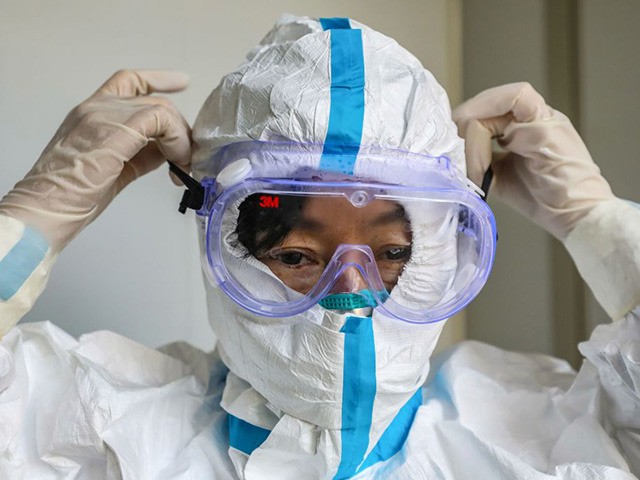The South China Morning Post (SCMP) on Friday obtained data from the Chinese government that pinpointed the first clear case of the Wuhan coronavirus occurring on November 17, 2019.
The Wuhan medical community began suspecting it had an epidemic on its hands in late December but was suppressed by Communist Party officials who wished to conceal the crisis for as long as possible.
The SCMP pointed out that some of the 266 cases from 2019 documented by the Chinese government might have been “backdated after health authorities had tested specimens taken from suspected patients.”
This data, which has not been released to the public, sharply contradicts official claims by the Chinese that only 41 infections had been confirmed as of mid-January.
The earliest reliably-dated case was a 55-year-old from somewhere in Hubei province. According to the trove of data reviewed by the SCMP, Chinese officials believe the patient contracted the virus on November 17. There might have been cases dated even earlier, but this could not be confirmed from the information seen by the newspaper.
“Of the first nine cases to be reported in November – four men and five women – none has been confirmed as being ‘patient zero.’ They were all aged between 39 and 79, but it is unknown how many were residents of Wuhan, the capital of Hubei and the epicentre of the outbreak,” the SCMP noted.
November 17 is considerably earlier than the December 8 date given to the World Health Organization (WHO) by the Chinese government for the first known coronavirus infection, and even the December 1 date later put forth by Chinese doctors in scholarly papers.
The original Wuhan whistleblower, Dr. Ai Fen, attempted to alert colleagues after her Wuhan Central Hospital diagnosed a patient with symptoms reminiscent of SARS on December 16. Her efforts were squelched by Communist Party officials, and even the recent interview where she recalled the early history of the coronavirus was censored by the Party.
“Previous reports said that although doctors in the city collected samples from suspected cases in late December, they could not confirm their findings because they were bogged down by bureaucracy, such as having to get approval from the Chinese Centre for Disease Control and Prevention, which could take days. They were also ordered not to disclose any information about the new disease to the public,” the SCMP pointed out.

COMMENTS
Please let us know if you're having issues with commenting.